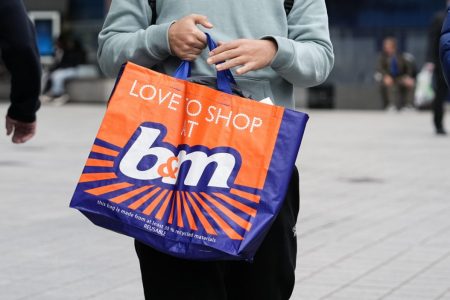The UK’s increasing reliance on energy use rationing schemes, designed to avert blackouts during peak demand, has sparked controversy amidst accusations of profiteering. While these initiatives, fueled by the 2030 Clean Power push, incentivize households with smart meters to reduce energy consumption at specific times, concerns have arisen regarding the distribution of the financial rewards. Energy companies receive substantial payments from the National Grid ESO (NESO) for facilitating these reductions, yet not all providers are passing on the full benefits to their customers. This disparity has raised questions about fairness and transparency within the system, particularly as some companies saw massive profits during the recent energy crisis. While British Gas claims to fully compensate its customers, other suppliers, such as Shell Energy, offer prize draws instead of direct financial rebates. This practice has drawn criticism, especially considering the substantial sums involved – companies claimed over £360,000 from NESO in just a few months. The discrepancy between the amount paid to suppliers and the rewards passed onto customers suggests potential exploitation of the system, raising concerns about consumer protection.
The core issue revolves around the difference between the market value of reduced energy consumption and the compensation received by households. While Octopus Energy, for example, pays customers £2.25 per unit saved, the actual value is estimated to be around £3. Although Octopus Energy argues that the scheme runs at a loss after factoring in customer incentives and other bonuses, and is still significantly cheaper than alternative grid stabilization methods, the lack of full transparency around these costs and the retained margins raises eyebrows. NESO’s ambiguous statement that customer rewards vary depending on the supplier further complicates the matter and underscores the need for greater clarity and regulation. This opacity allows companies to potentially benefit disproportionately from a scheme intended to benefit both the grid and consumers, creating an uneven playing field and fueling suspicions of profiteering.
Beyond the energy sector, several other businesses have experienced fluctuating fortunes. JD Sports, despite being a major retailer, has faced challenges, issuing profit warnings attributed to heavy discounting by competitors. This competitive pressure has impacted sales, leading to a decline in share price. Conversely, Ramsdens, a pawnbroker chain, has thrived amidst the economic uncertainty. The rising price of gold has driven record profits, as more customers are selling gold jewelry to capitalize on the boom and bolster their finances. This contrasting performance highlights the diverse impacts of economic conditions on different sectors.
The recruitment market has also seen significant shifts, with hiring outside London slowing considerably. Robert Walters, a prominent recruiter, reported a substantial drop in fee income outside the capital, attributed to hiring freezes implemented by regional businesses. This stark contrast to London’s marginally increasing income highlights the geographical disparities in the UK job market and the difficulties faced by businesses outside the major metropolitan areas. This economic slowdown has even impacted the recruiter itself, leading to workforce reductions.
Card Factory, despite enjoying a successful Christmas trading period, faces significant headwinds in the form of increased costs stemming from recent budget announcements. While sales of cards, gifts, and toys rose significantly, the company anticipates a considerable financial burden from these new measures. Meanwhile, Persimmon, a homebuilder, offered a glimmer of hope for the housing market, exceeding expectations with increased house construction and higher average selling prices. However, concerns remain about the potential dampening effect of high interest rates on consumer confidence.
The dominance of Google in the online market is under scrutiny from the Competition and Markets Authority (CMA). The investigation aims to determine whether Google’s market power is stifling competition and innovation by prioritizing its own services. The rise of artificial intelligence adds further urgency to this inquiry, as Google’s vast influence over online search raises concerns about a level playing field for competitors. The CMA’s focus on Google’s “strategic market status” signals a significant step towards regulating the power of tech giants.
Ocado Retail reported positive results, attributing its sales revival to lower prices and a strong Christmas performance. The online grocer, a joint venture between Ocado and Marks & Spencer, has seen increased sales and customer numbers, while also managing to maintain basket costs despite inflationary pressures. This success story contrasts with the struggles of other retailers, demonstrating the potential for growth even in a challenging economic environment. Finally, Gym Group, a low-cost fitness chain, and Games Workshop, a fantasy figurine maker, have both reported positive results, demonstrating resilience and adaptability in their respective markets.
In conclusion, the UK’s economic landscape presents a mixed picture. While some sectors, like online retail and certain niche markets, are thriving, others face significant challenges from competition, rising costs, and economic uncertainty. The energy rationing scheme, while designed to address critical infrastructure needs, has raised concerns about fairness and transparency in the distribution of financial benefits. The ongoing investigation into Google’s market dominance signals a growing awareness of the need to regulate the power of tech giants. Overall, these developments highlight the complex and evolving nature of the UK economy and the diverse impacts on businesses and consumers alike.











